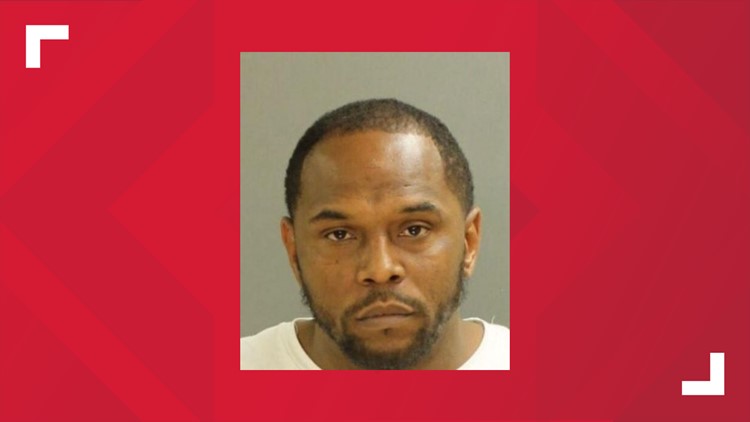LANCASTER, Pa. — The Superior Court of Pennsylvania last week affirmed the conviction of a Lancaster man serving life in prison for the September 2019 shooting of Pedro Almodovar and denied the appeal of his sentence, the Lancaster County District Attorney's Office announced Wednesday.
Raymond Speller was convicted of Almodovar's murder and related firearms violations in May 2021 and sentenced to life in prison, plus 7½ to 20 years, by Lancaster County Judge Jeffrey Wright in October of that year.
Speller argued in his appeal that the shooting was in self-defense, but the Superior Court determined there was no evidence to support that argument and found that he was in no imminent danger when he left a home, walked down the street, and shot the victim as the victim sat in a parked car on the 300 block of Howard Avenue.
Surveillance footage showed that Almodovar was in the front passenger seat of a parked red SUV with a female driver. A friend of Speller’s walked past the vehicle, said “what’s up” to the pair and walked away, entering another house on Howard Avenue.
A few moments later, Speller and the friend exited that residence. The friend stayed on the porch while Speller approached the car on the passenger side and fired one shot, which struck Almodovar in the torso.
While at the scene of the homicide, officers and detectives smelled an odor of smoke and heard a fire alarm coming from the same Hillrise Apartment residence that Speller and his friend had entered and exited.
The fire was eventually determined to be caused by food left unattended on a hot stove. Speller’s driver’s license was found on a table in plain sight inside the residence.
This, along with additional evidence, helped authorities determine Speller as the shooter.
Speller presented five issues on appeal. Did the trial court err when it:
1. Denied his request for a self-defense jury instruction?
Speller argued that he was fearful of the victim due to prior threats and believed he was in imminent danger when the decedent victim parked in a lot outside of his apartment.
The Superior Court stated in its opinion that “Speller had no justification for killing [the victim] at a moment when he posed no threat to him, based merely on a belief that [the victim] allegedly threatened Speller in the past, and Speller did not demonstrate that he was in immediate danger that necessitated protection by force.”
The Superior Court also stated, “there was no evidence that Speller was free from fault in provoking the incident and that he did not violate his duty to retreat.”
Thus, the court did not abuse its discretion in denying Speller’s request for a jury instruction on self-defense.
2. Denied his request for voluntary manslaughter, unreasonable belief jury instruction?
Speller again argued he feared the decedent victim because he had allegedly threatened his life before. The defendant argued whether that belief was unreasonable was a question for the jury, and that the court improperly usurped the jury’s role by refusing a voluntary manslaughter jury instruction.
The Superior Court found that evidence presented at trial failed to establish any of the factors necessary for Speller’s claim of self-defense. This claim was found meritless as even if the defendant “unreasonably believed that deadly force was necessary, there was no evidence to support the remaining elements of self-defense, i.e., that Speller was free from fault in provoking the incident and that he did not violate his duty to retreat.”
3. Did not permit defense counsel to question a detective about the decedent victim’s violent reputation with law enforcement?
The Superior Court ruled that, since neither self-defense nor imperfect self-defense were proper issues at trial, the court did not abuse its discretion by prohibiting counsel from questioning a testifying detective about the decedent victim’s character and reputation for violence.
4. Limited the questioning of a defense witness to four questions chosen by the trial court, none of which involved substantive communication between decedent victim and the witness that was relayed to the defendant about the decedent victim wanting to kill the defendant?
It was found that the court did not err in limiting the questioning because “the court’s four questions were substantially the same as Speller’s proposed questions, and the court was properly within its discretion to the limit the questioning of the witness.”
This questioning was limited because Speller’s alleged fear of the victim was largely irrelevant since self-defense was not properly at issue during trial and both defense and prosecution counsel engaged in thorough questioning of Speller regarding his mental state at the time he killed the victim.
The court found that the limited relevance of further questioning the witness would have been duplicative and outweighed the danger of confusing the jury.
5. Precluded testimony about threats made by the decedent victim towards the defendant, as they were relative to the defendant’s state of mind?
The Superior Court stated in its decision: “The court precluded this testimony because it was ‘textbook hearsay’ and was not relevant because self-defense was not at issue.”
The Superior Court discerned no abuse of discretion, the District Attorney's Office said.
Assistant District Attorney Tiffanie Camarota handled the case on appeal.



